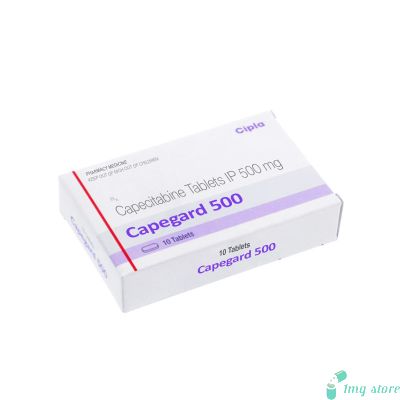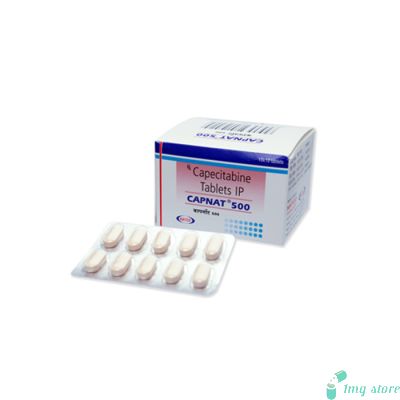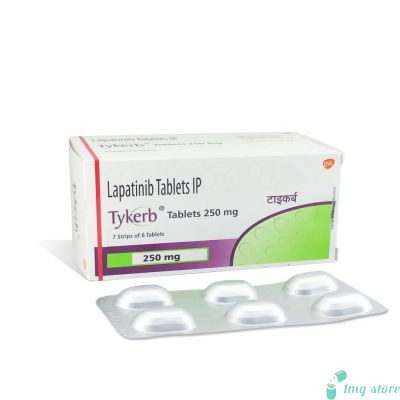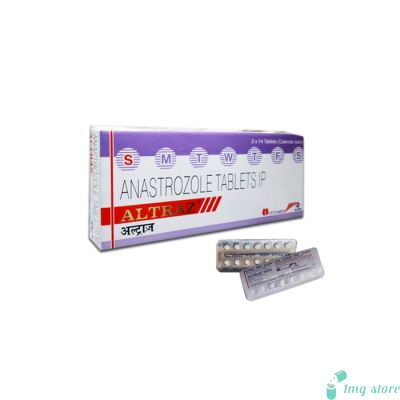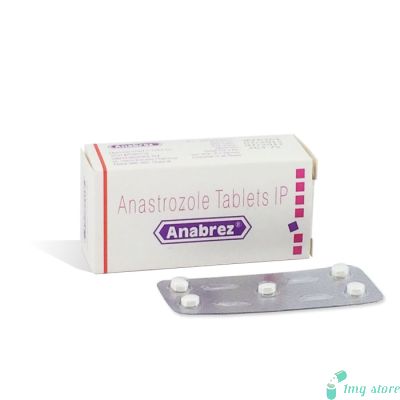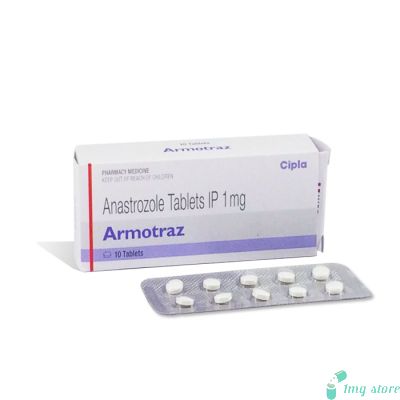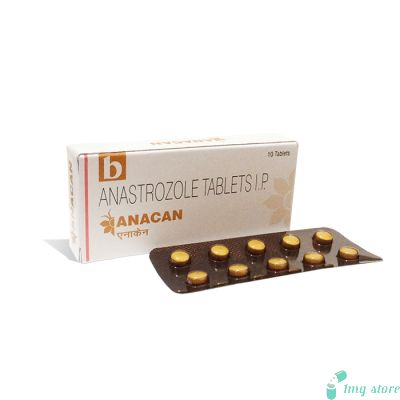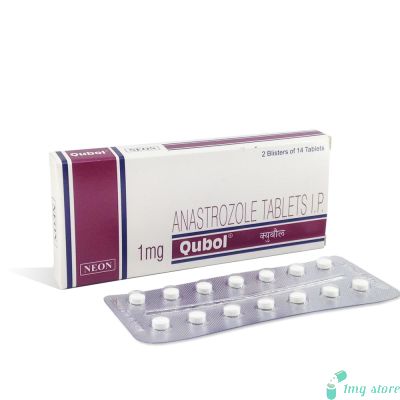Xeloda Tablet (Capecitabine)
Capecitabine, marketed under the brand name Xeloda, is an oral chemotherapy medication used in the treatment of various types of cancer, including colon cancer and breast cancer.
Information About Xeloda Tablet (Capecitabine)
Capecitabine, marketed under the brand name Xeloda, is an oral chemotherapy medication used in the treatment of various types of cancer, including colon cancer and Breast cancer. It belongs to a class of drugs called fluoropyrimidines, which work by interfering with the growth and spread of cancer cells in the body. Capecitabine is converted into an active form in the body, which targets and destroys cancer cells.
Capecitabine Tablet chemotherapy: Capecitabine Tablets are commonly used in chemotherapy regimens for various types of cancer, including breast cancer. As an oral chemotherapy medication, Capecitabine offers convenience and flexibility for patients, allowing them to take the medication at home rather than visiting a medical facility for intravenous infusions. Capecitabine is converted into its active form in the body, targeting and inhibiting the growth of cancer cells. It is often used in combination with other chemotherapy drugs to enhance its effectiveness in treating breast cancer and improving patient outcomes.
Capecitabine for breast cancer: Capecitabine is an oral chemotherapy medication commonly used in the treatment of breast cancer. It belongs to a class of drugs known as antimetabolites, which work by interfering with the growth and replication of cancer cells. Capecitabine is often prescribed for patients with metastatic breast cancer or as an adjuvant treatment following surgery. It is important to follow the prescribed dosage and regimen provided by your healthcare provider to maximize the benefits of Capecitabine in breast cancer treatment.
Dosage Information:
The dosage of Capecitabine (Xeloda) varies depending on the type of cancer being treated, as well as the individual patient's condition and response to the medication. It is important to follow the specific dosage instructions provided by the healthcare professional. Capecitabine is typically taken orally, in the form of tablets, and is usually prescribed in a cyclic treatment regimen.
For the treatment of colon cancer, the recommended dosage of Capecitabine is often based on body surface area (BSA) and is commonly administered as a combination therapy with other chemotherapy drugs. The typical starting dose is 1,250 mg/m² twice daily for 2 weeks, followed by a 1-week rest period. This 3-week cycle may be repeated as determined by the treating physician. In the case of breast cancer, Capecitabine is often used as a treatment option for patients who have not responded well to other therapies. The recommended dosage in this context is usually 1,250 mg/m² twice daily for 2 weeks, followed by a 1-week rest period. This 3-week cycle may be repeated as prescribed.
It is crucial to strictly adhere to the prescribed dosages and follow the recommended schedule. Any changes or adjustments to the dosage should only be made under the guidance of a healthcare professional. Capecitabine (Xeloda) is a Life-Saving drug, that has been proven effective in the treatment of various types of cancer. However, it is important to be aware of the potential precautions, drug interactions, and side effects associated with its use. By closely following the instructions of healthcare professionals, monitoring for any adverse effects, and reporting any concerns promptly, patients can maximize the benefits of Capecitabine while minimizing risks.
Capecitabine Tablet prices: At our website, 1mgstore.com, we offer a convenient platform for you to check the price of Capecitabine Tablets. We understand the importance of accessing affordable medications during cancer treatment, and we strive to provide accurate and up-to-date pricing information. By visiting our website, you can easily compare prices and make informed decisions about purchasing Capecitabine Tablets for your breast cancer treatment.
Some Of The Common Saftey Advice Must Be Taken While Using Capecitabine Tablet
- Before starting Capecitabine treatment, it is important to inform your healthcare provider about any pre-existing medical conditions, including liver disease, kidney disease, heart problems, or a history of blood disorders. Capecitabine should be used with caution in these cases.
- Capecitabine is an Anti-Cancer drug and should only be used under the supervision of a qualified healthcare professional experienced in the use of chemotherapy medications.
- Capecitabine 500mg/Xeloda can cause harm to the unborn baby, and it is not recommended during pregnancy. It is important to use effective contraception during treatment and for a certain period after the last dose.
- Capecitabine may also pass into breast milk and may harm the nursing baby, so breastfeeding should be avoided during treatment.
- In Women's care, Capecitabine can cause menstrual irregularities in women, and it may be necessary to discuss the potential impact on fertility with your healthcare provider prior to treatment.
Primary Applications Of Xeloda Tablet (Capecitabine) To Be Noticed
Capecitabine for Colon Cancer:
Capecitabine is commonly used as a part of a capecitabine chemotherapy regimen for the treatment of colon cancer. It is specifically employed in advanced or metastatic cases where surgical intervention may not be feasible or sufficient. The medication works by inhibiting the growth of cancer cells and impeding their ability to spread. Capecitabine has demonstrated effectiveness in prolonging survival rates and improving the quality of life for patients with colon cancer.
Capecitabine for Breast Cancer:
Capecitabine is an Anti-cancer drug, also utilized as a treatment option for certain types of breast cancer, particularly when other therapies have not been successful. It may be prescribed as single-agent therapy or in combination with other drugs. Capecitabine has shown promising results in improving progression-free survival rates and overall survival rates in patients with breast cancer.
Other Uses:
Besides colon cancer and breast cancer, Capecitabine/Xeloda may be used in the treatment of other cancers, including gastric cancer and rectal cancer. However, the specific usage and dosage guidelines for these conditions may differ and should be determined by a healthcare professional.
Some Of The Key Secondary-Effects While Using Xeloda Tablet (Capecitabine)
- Common side effects: The most common side effects associated with Capecitabine include fatigue, nausea, vomiting, diarrhea, abdominal pain, loss of appetite, and taste alterations. These symptoms are usually mild to moderate and can be managed with supportive care measures.
- Hand-foot syndrome: Capecitabine can cause a condition known as hand-foot syndrome, also called palmar-plantar erythrodysesthesia. It is characterized by redness, swelling, tingling, and pain in the hands and feet. Taking precautions such as avoiding excessive pressure or temperature changes on the hands and feet, using moisturizers, and wearing comfortable shoes can help alleviate symptoms.
- Hematological effects: Capecitabine/Xeloda may affect the production of blood cells, leading to a decrease in white blood cell count, red blood cell count, and platelets. This can result in an increased risk of infections, anemia, and bleeding. Regular blood tests are important to monitor these effects.
- Liver toxicity: Capecitabine can cause liver toxicity, leading to elevated liver enzyme levels. Monitoring liver function through blood tests is necessary during treatment.
- Cardiotoxicity: Rarely, Capecitabine can lead to cardiotoxicity, including heart attack, angina (chest pain), and arrhythmias (irregular heartbeat). It is important to promptly report any symptoms of chest pain, shortness of breath, or palpitations to a healthcare professional.
- Other side effects: Other less common side effects of Capecitabine may include hair loss, nail changes, allergic reactions, and neurological symptoms such as confusion or dizziness. If any unusual or severe side effects occur, it is essential to seek medical attention immediately.
Frequently Asked Quries About Capecitabine Tablet (Xeloda)
Can Capecitabine (Xeloda) Be Taken With Food?
Yes, Capecitabine can be taken with or without food. However, it is recommended to follow the specific instructions provided by your healthcare professional regarding the timing and administration of the medication. Some individuals may experience gastrointestinal side effects, such as nausea or vomiting, which can be managed by taking Capecitabine with food.
How Long Does It Take For Capecitabine/Xeloda To Start Working?
The effectiveness of Capecitabine/Xeloda can vary depending on the type and stage of the cancer being treated. It typically takes several weeks of treatment before noticeable improvements are observed. However, the response to Capecitabine can vary among individuals, and it is important to continue taking the medication as prescribed by your healthcare provider.
Can Capecitabine Cause Fertility Problems In Women?
Capecitabine may affect menstrual cycles and fertility in women. It is advisable to discuss fertility preservation options with your healthcare provider before starting treatment. While the impact on fertility can vary, it is important to use effective contraception during treatment and for a certain period afterward to prevent pregnancy.
Can Capecitabine Interact With Herbal Supplements?
Yes, Capecitabine can potentially interact with herbal supplements. It is crucial to inform your healthcare provider about all the supplements you are taking to avoid any potential interactions. Some herbal supplements, such as St. John's wort, may decrease the effectiveness of Capecitabine, while others may increase the risk of side effects. Your healthcare provider can provide specific guidance on which supplements are safe to take during treatment.
Is Capecitabine Safe For Elderly Patients?
Capecitabine can be used in elderly patients with caution, as age-related factors such as reduced organ function and overall health may affect the tolerability and efficacy of the medication. Close monitoring for side effects and dose adjustments based on individual patient factors may be necessary. It is important to discuss the potential benefits and risks with a healthcare professional to determine the most appropriate treatment approach for elderly patients.
Key Interconnection of Drug To Be Kept In Mind While Using Xeloda Tablet (Capecitabine)
- Warfarin and other blood thinners: Capecitabine may enhance the effects of blood thinning medications, increasing the risk of bleeding. Close monitoring of blood clotting parameters is essential if these drugs are used concomitantly.
- Leucovorin: The concurrent use of Capecitabine with leucovorin may increase the toxicity of Capecitabine. Close monitoring of side effects is advised when these medications are used together.
- Sorivudine or its analogs: The use of Capecitabine/Xeloda with sorivudine or its analogs is contraindicated due to the potential for severe and life-threatening toxicities. Capecitabine should not be initiated within four weeks of using sorivudine or its analogs.
- Other medications: It is crucial to inform your healthcare provider about all prescription, over-the-counter, and herbal medications you are taking, as well as any supplements or vitamins, to avoid potential drug interactions. Certain medications, such as antacids, proton pump inhibitors, and certain antibiotics, may interact with Capecitabine and affect its effectiveness or increase the risk of side effects.
| Manufacturer | : | Roche Pharma, India |
| Equivalent Brand | : | Xeloda |
| Generic Search | : | Capecitabine |









